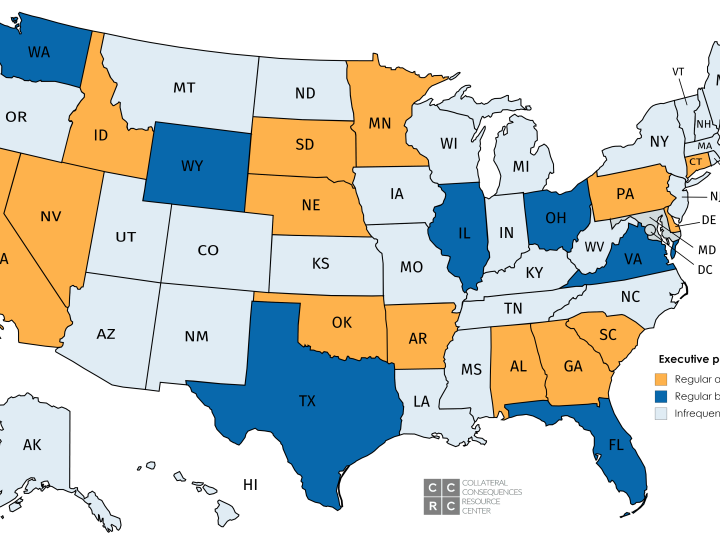The Collateral Consequences Resource Center is currently finalizing a 50-state report on the availability of relief from the adverse civil effects of a criminal arrest or conviction. Using research from the Restoration of Rights Project (RRP), the report analyzes the data in several different categories, including executive pardon, judicial record-closing and certificates, and regulation of employment and licensing. It showcases those states that have the most comprehensive and effective relief mechanisms, and at the same time provides a snapshot of the extraordinary recent interest in restoration of rights and status in state legislatures across the country. It also looks at what states are doing to enable less serious offenders to avoid a criminal record altogether, through statutory deferred adjudication programs managed by the courts.
We preview here the report’s conclusions, illustrated by a series of color-coded maps that create a visual image of where people with a criminal record appear to have the best chance of regaining their rights and status through a variety of different relief mechanisms. The full report will be published shortly after Labor Day.
Table
1. Executive pardon
2. Judicial record-closing
3. Deferred adjudication
4. Regulation of employment and licensing
5. Loss and restoration of voting rights
